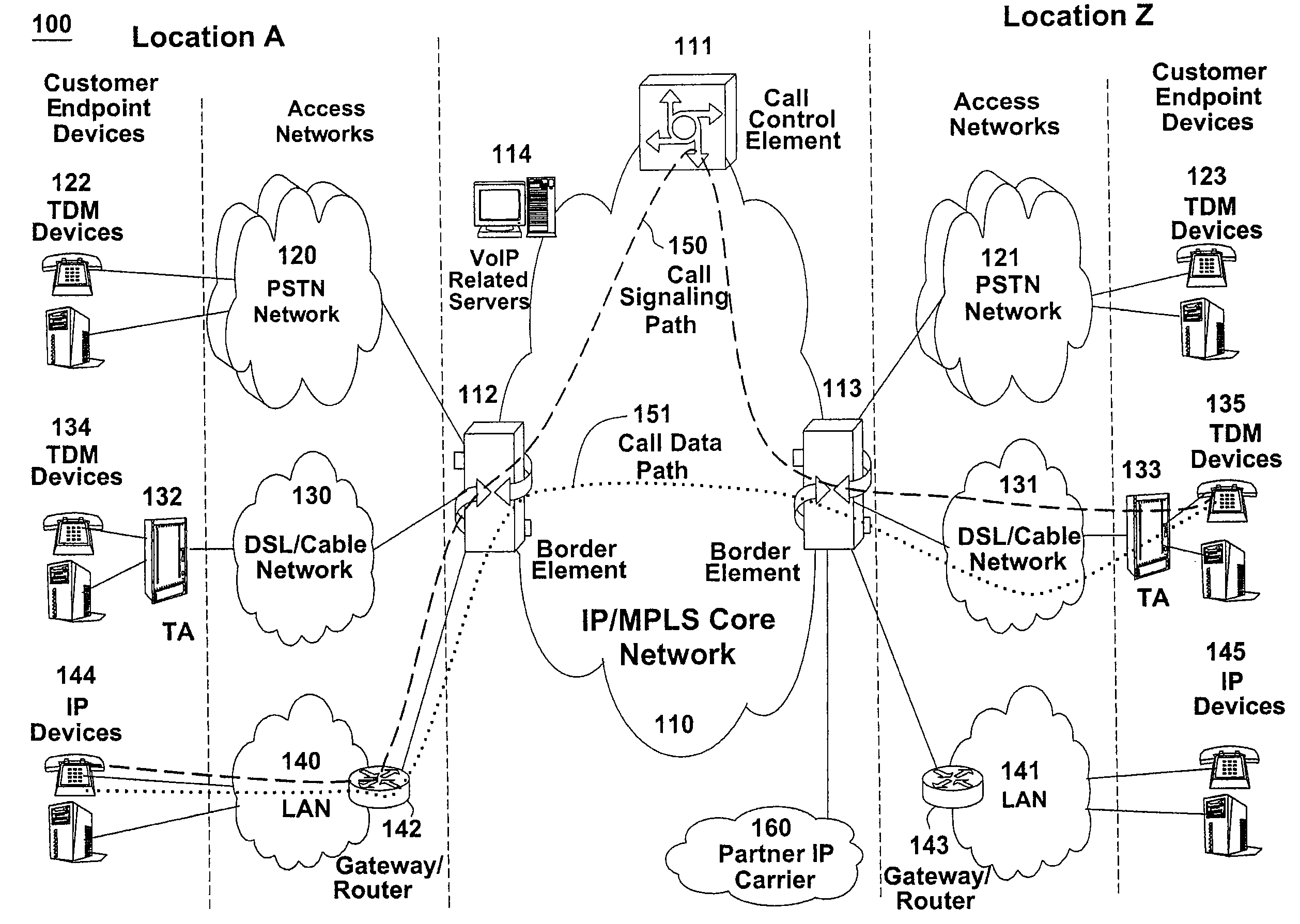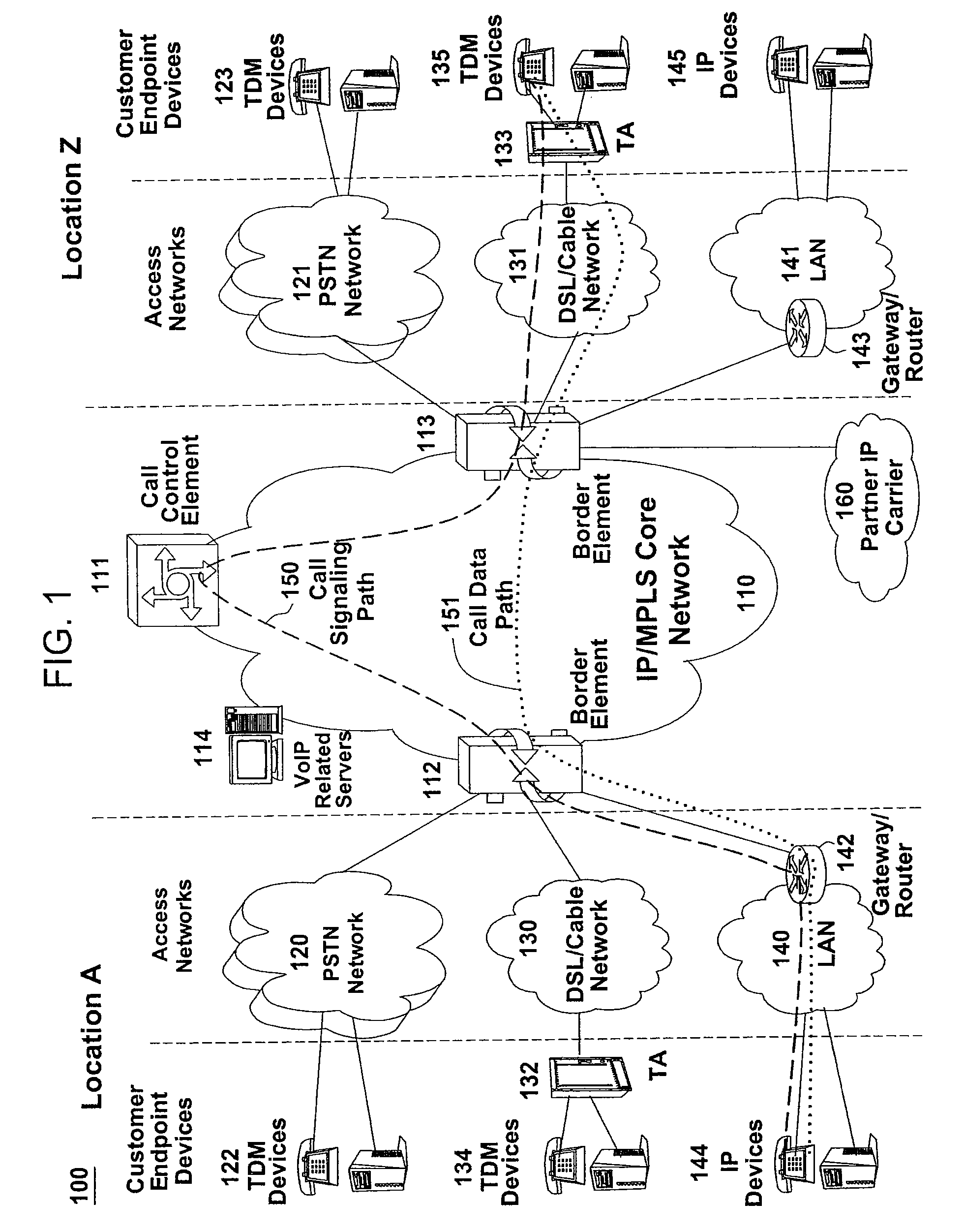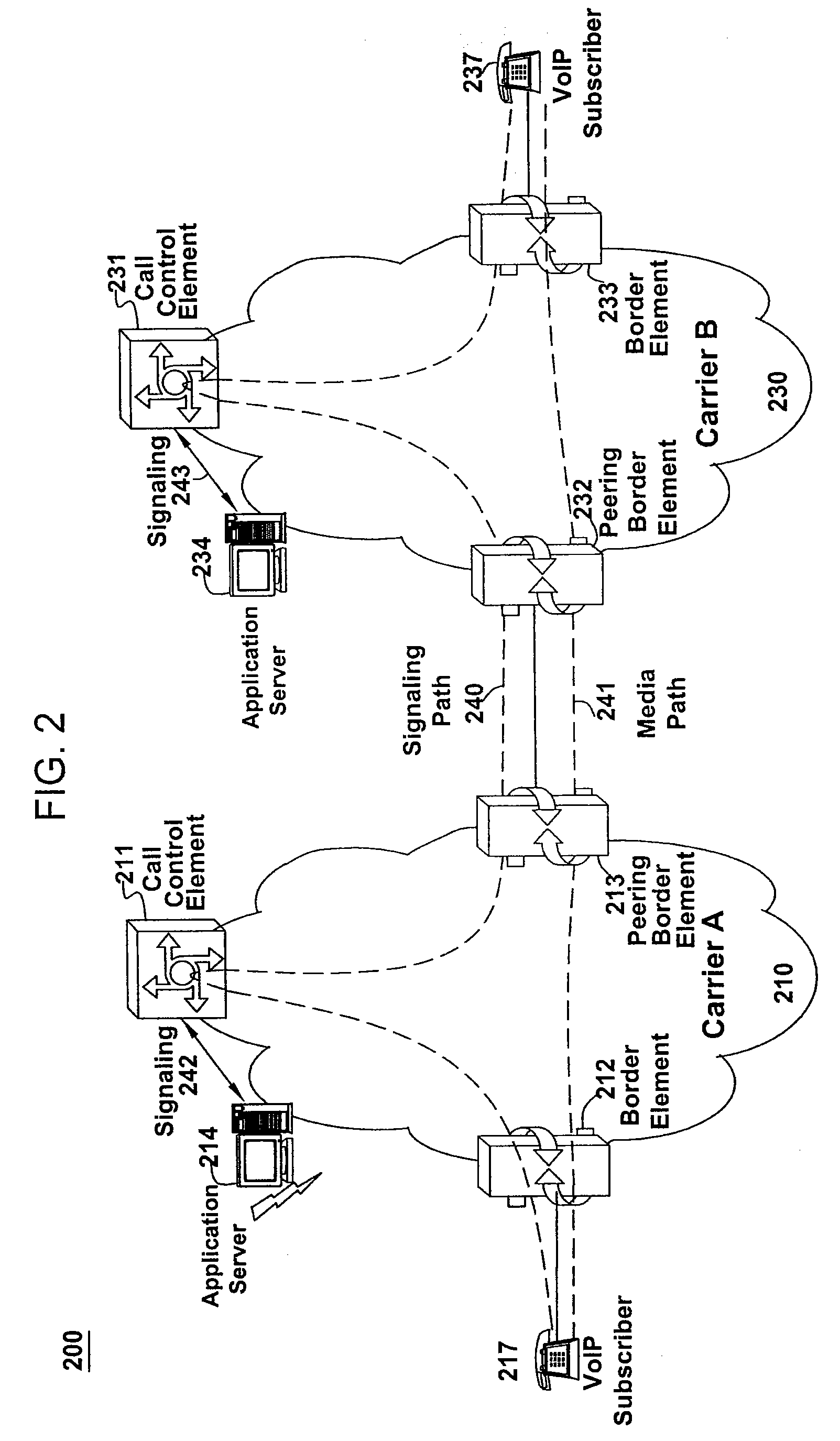Method and apparatus for providing disaster recovery using network peering arrangements
a network peering and disaster recovery technology, applied in data switching networks, multiplex communication, digital transmission, etc., can solve the problem that site diversity can be costly to implement by a single network provider, and achieve the effect of reducing the cost of providing site diversity
- Summary
- Abstract
- Description
- Claims
- Application Information
AI Technical Summary
Benefits of technology
Problems solved by technology
Method used
Image
Examples
Embodiment Construction
[0013]To better understand the present invention, FIG. 1 illustrates an example network, e.g., a packet-switched network such as a VoIP network related to the present invention. The VoIP network may comprise various types of customer endpoint devices connected via various types of access networks to a carrier (a service provider) VoIP core infrastructure over an Internet Protocol / Multi-Protocol Label Switching (IP / MPLS) based core backbone network. Broadly defined, a VoIP network is a network that is capable of carrying voice signals as packetized data over an IP network. An IP network is broadly defined as a network that uses Internet Protocol to exchange data packets.
[0014]The customer endpoint devices can be either Time Division Multiplexing (TDM) based or IP based. TDM based customer endpoint devices 122, 123, 134, and 135 typically comprise of TDM phones or Private Branch Exchange (PBX). IP based customer endpoint devices 144 and 145 typically comprise IP phones or PBX. The Ter...
PUM
 Login to View More
Login to View More Abstract
Description
Claims
Application Information
 Login to View More
Login to View More - R&D
- Intellectual Property
- Life Sciences
- Materials
- Tech Scout
- Unparalleled Data Quality
- Higher Quality Content
- 60% Fewer Hallucinations
Browse by: Latest US Patents, China's latest patents, Technical Efficacy Thesaurus, Application Domain, Technology Topic, Popular Technical Reports.
© 2025 PatSnap. All rights reserved.Legal|Privacy policy|Modern Slavery Act Transparency Statement|Sitemap|About US| Contact US: help@patsnap.com



